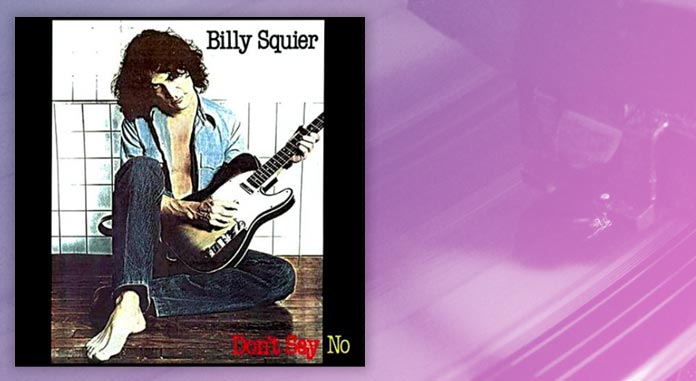Waxing Nostalgic: METAL MAYHEM! with Billy Squier, “In the Dark”
Published on May 20th, 2013 in: Music, Waxing Nostalgic |The Cincinnati Gardens was a gorgeous wreck of a multi-purpose hall, all crumbling ramps and parking garage architecture, redolent with the faint scent of circuses past. It was the “B” venue at the time; if a band couldn’t sell out the mighty Riverfront Coliseum, then they were relegated to the Gardens. Mid-South and Mid-Atlantic Wrestling came there, and I saw one of the greatest matches of my life there when I was eight (Rowdy Roddy Piper vs. Greg “The Hammer” Valentine, for the curious). The Gardens was also the site of the tragic concert by The Who, where nine people were trampled to death in a rush to get to the festival seating on the floor. The band wasn’t told about the deaths until afterwards. I was glad not to know anyone who went to that show, and the whole region was deeply affected and saddened by that event.
They talked about banning rock and roll from the Gardens after that, but that seemed too ham-fisted, even for Cincinnati, the town that later on would recoil in horror at something as mildly raunchy as a Robert Mapplethorpe photo exhibit. Instead, they banned festival seating, choosing to reserve all seats, including the ones on the floor. It was a good move, even though I was never able to afford seats so close to the stage, those magic spots where you could reach up and touch whatever god happened to be performing that night.
The first big rock concert I saw was at the Gardens, and it was a damned fine one. I saw Queen.
Yeah, buddy. Freddy Mercury in all his strutting, preening glory, long before I was mature enough to knew what it all meant. Brian May, his long curly hair waving softly in a breeze of fan adulation, stomped around the stage like a friendly Yeti. A happy Roger Taylor pounded the drums while bassist John Deacon hung towards the back of the stage, ever the recluse, like a lot of bassists are. Fog and lasers, shiny body suits, and the weird choreographed majesty of “Bohemian Rhapsody” all stuck in my mind, but not as much as the opening act.
“The Stroke” was everywhere that summer, inescapable on the pop stations and a heavily rotated staple on the AOR stations. It was an instant FM classic, dripping with innuendo and hammering a simple 2/4 boom-clap groove into your soul, the perfect one hit wonder. Squier was scrappy, though, and his second album, Don’t Say No, slowly unraveled a skein of hits.
I watched Squier and his band stomp through a 45-minute-long opening set. They worked that shit. Extended solos, call and response sections, pick throwing, and every other kind of fan service you could possibly jam into that short of a time frame. Sweat flew off the musicians into the crowd down in the magic seats and when they bid us thank you and good night, there was a sense of true gratefulness. They all had the air of kids whose parents had let them stay outside a little later than usual so they could finish playing some imaginary game.
When the show ended and I was asked how I enjoyed my first big rock show, I had to say I liked Billy Squier more than I liked Queen. This was heresy, of course, and my opinion was ignored for the rest of the ride home. I stood by it, though.
Queen was very flashy, but because of their style, they had recorded things that they couldn’t reproduce on stage. During the whole “Scaramouche” section of “Bohemian Rhapsody,” the stage filled with thick white smoke and the band left. They played a recording of that part while they went backstage and changed clothes. Sure, they jumped back out to finish the song, but were they really playing? How was I supposed to be sure that hadn’t lip-synched the whole show? That would have been a rip-off. I could stay home and listen to an album, for that matter.
Billy Squier, on the other hand, had the harder job. He and his band turned an indifferent crowd of Queen fans into a bunch of clapping fans, involved in his music. He turned them, as surely as a vampire turns a virgin. No tricks or gimmicks, just the power of the metal and the love of rock and roll.
I don’t remember much about the Queen set, except my feeling of profound disappointment. Billy Squier, however, turned me into a fan. He had killed the Killer Queen and conquered the Gardens. Songs like this, beginning with that terrifying interstate-from-a-distance sound and odd little acoustic part in the middle of a righteous solo, set Squier apart from those other ’80s wankers, like Sammy Hagar.
Squier was the king.

Time limit is exhausted. Please reload the CAPTCHA.